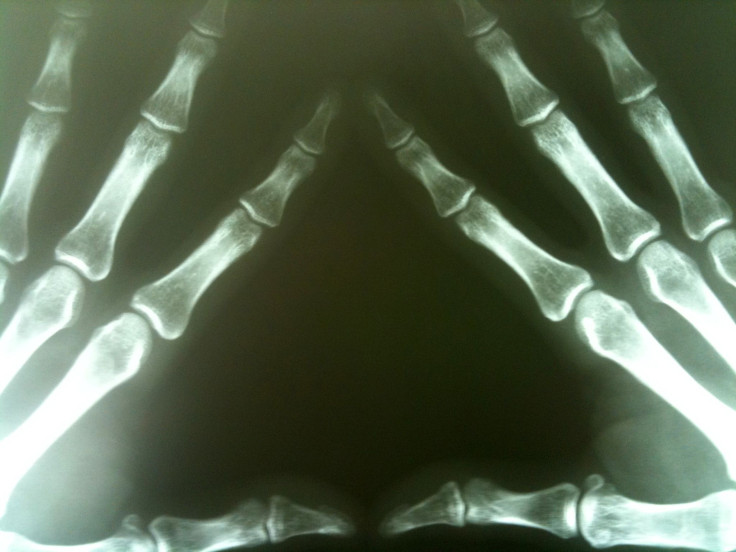Carcinogenic Or Counterfeit? X-Rays May Not Cause Cancer After All, Proposes New Study

Most of us have been there, sitting in a reclined chair with a paper bib tied around our neck, waiting for the hygienist to get on with it. We’re at the dentist for a checkup, and we’ve just been handed a heavy lead blanket to hide under while they snap a picture of our teeth. This protective blanket is simply part of the procedure, and it goes along with an assumption that is rarely questioned in today’s society: X-rays are dangerous and they cause cancer.
X-rays and CT scans, both medical imagining techniques that utilize ionizing radiation, have been labeled by many reputable scientific sources as carcinogenic. The idea is so ubiquitous that even a description of the process can inspire fear of gruesome side effects and danger. The word “radiation” evokes images of nuclear disasters, and the idea of having high-energy waves penetrating our bodies is understandably somewhat off-putting.
A new study challenges these assumptions, and its authors suggest that fears of high-level radiation and reliance on an “unproven statistical model” have given society a false link between low doses of radiation and cancer.
Published in the journal Technology in Cancer Research & Treatment, the article questions the common use of a statistical model called “linear no-threshold” (LNT) in studies that have found a connection between medical imaging and cancer. The LNT works by taking the recognized carcinogenic effects of high doses of radiation and extrapolating downward to lower doses. Essentially, the model assumes the only safe dose of radiation is a dose of zero.
This model "is of questionable validity, utility, and applicability for estimation of cancer risks," wrote Dr. James Welsh, a professor in the Department of Radiation Oncology of Loyola University Chicago Stritch School of Medicine, and co-author Dr. Jeffery Siegel, the president and CEO of Nuclear Physics Enterprises in Marlton, N.J.
Despite its limitations, studies using the LNT have become the voice most of us hear. Like many other online sources, the American Cancer Society website answers “Do X-rays and gamma-rays cause cancer?” with a resounding yes, even though they go on to write, “most studies have not been able to detect an increased risk of cancer among people exposed to low levels of radiation.”
The researchers stress this uncertainty in the new study.
"Although radiation is known to cause cancer at high doses and high-dose rates, no data have ever unequivocally demonstrated the induction of cancer following exposure to low doses and dose rates," Welsh and Siegel wrote in the study.
Welsh and Siegel provide other examples that may call into question the validity of previous studies on a link between cancer and medical imaging. Their research cites two recent studies that suggested increased cancer risks from radiation associated with pediatric CT scans, and explains that these cancers were more likely due to the conditions that prompted the CT scan in the first place, and have less to do with radiation exposure.
"The more significant and actual risks associated with not undergoing an imaging procedure or undergoing a more invasive exploratory surgery are generally being ignored in both the scientific literature and the popular media," Welsh and Siegel wrote.
Source: Siegel J, Welsh J. Does imaging technology cause cancer? Debunking the linear no-threshold model of radiation carcinogenesis. Technology in Cancer Research & Treatment. 2015.



























